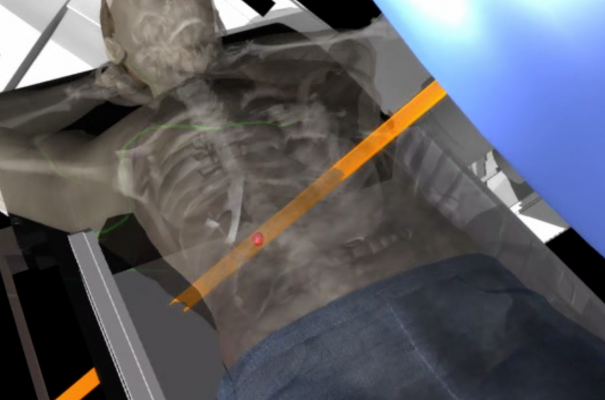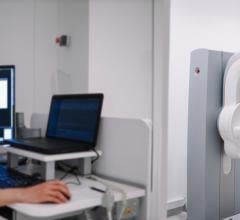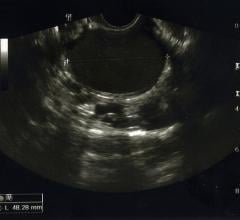
January 2, 2017 — Radiotherapy increased complications and impaired patient-reported satisfaction with reconstructed breasts in breast cancer patients who received implant reconstruction but not in those who received autologous reconstruction, according to data from a large, prospective, multicenter cohort study presented at the 2016 San Antonio Breast Cancer Symposium in December.
Autologous breast reconstruction is a procedure in which a woman's own body tissues are used to create a new breast after breast cancer surgery.
"There is growing evidence supporting the benefits of post-mastectomy radiotherapy in appropriate patients, but many patients still must decide whether they feel that the benefits given their particular circumstances outweigh the risks," said Reshma Jagsi, M.D., D.Phil, professor and deputy chair in the Department of Radiation Oncology at the University of Michigan. "One of the risks of radiation therapy is that it may affect the options and outcomes for breast reconstruction, which many women who receive mastectomy desire."
Women diagnosed with early-stage breast cancer face challenging decisions that will impact both their long-term disease control and quality of life, Jagsi said. Because many women who undergo mastectomy become long-term survivors, breast reconstruction can have a lasting impact on quality of life. Optimal approaches to integrate post-mastectomy radiotherapy and breast reconstruction are not well established thus far, she added.
Jagsi and colleagues conducted a multicenter cohort study called the Mastectomy Reconstruction Outcomes Consortium (MROC), in which they collected medical data and patient-reported outcomes data from 553 and 1,461 patients who did and did not receive radiotherapy, respectively. About 38 percent and 25 percent of the patients who did and did not receive radiotherapy, respectively, received autologous reconstruction, and the rest received implant reconstruction.
The researchers assessed if radiotherapy was associated with developing complications after breast reconstruction, such as hematoma and wound infection, and measured patients' satisfaction with the outcome using a BREAST-Q patient-reported outcome instrument, one and two years after reconstruction.
After a year of follow-up, 28.8 and 22.3 percent of the patients who did and did not receive radiotherapy, respectively, had at least one of the complications measured. After two years of follow-up, 34.1 percent of the patients who received radiotherapy and 22.5 percent of those who did not receive radiotherapy experienced reconstruction-related complications.
When the researchers took several variables into account, radiotherapy was associated with more than double the odds of developing complications in patients who received implants, but it was not associated with complications in those who received autologous reconstruction.
Based on BREAST-Q scores, patient-reported satisfaction was significantly lower in those who received radiation versus those who did not receive radiation among patients who received implants, but no such differences were found among patients who received autologous reconstruction.
"Although women must still weigh multiple factors, including the differences in operative time and rehabilitation required for different approaches, when selecting their preferred type of reconstruction, those who plan to receive post-mastectomy radiation therapy should be informed of the substantial and significant impact of radiotherapy observed in the current study among patients who received implant reconstruction," Jagsi said.
"Conversely, those who plan to pursue autologous reconstruction and are debating whether or not to receive radiotherapy may derive some reassurance from the current study findings that outcomes among patients receiving autologous reconstruction did not appear substantially worse than those of unirradiated patients by two years," she added.
A limitation of this study is that it is observational and does not establish cause-effect relationship. Further, patients treated at centers that are particularly skilled in integrating implant-based approaches with radiotherapy may still do well with such an approach, Jagsi noted.
This study was funded by the National Cancer Institute. Jagsi declares no conflict of interest.
Abstract Publication Number: S3-07
Title: Impact of radiotherapy on complications and patient-reported satisfaction with breast reconstruction: Findings from the prospective multicenter MROC study
Presented: Thursday, Dec. 8, General Session 3 - Hall 3, 11 a.m. CT
For more information: www.sabcs.org


 April 16, 2024
April 16, 2024 








